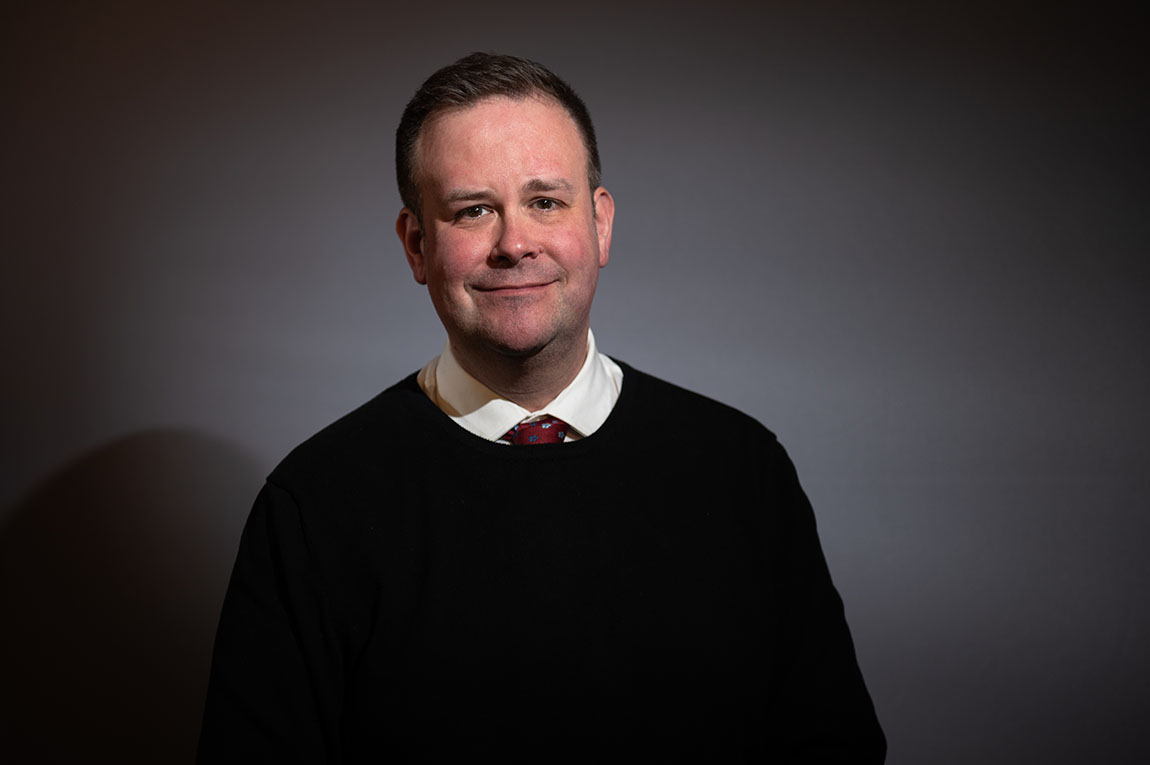Why I Study Composition and Music Theory
Associate Professor of Music Andrew Ardizzoia shares his journey as a musician and a teacher.By: Andrew Ardizzoia, as told to Meghan Kita Monday, July 24, 2023 09:25 AM
 Associate Professor of Music Andrew Ardizzoia
Associate Professor of Music Andrew ArdizzoiaMy parents loved the music they grew up with and had a big record collection. I don’t think either of them could read music, but they tried to start me on piano when I was about four. That didn’t take, but I liked making sounds with the piano. My mom later said it wasn’t like most little kids where they just bang on the keys: “You would pick out notes and make little melodies.”
I grew up when music was still commonplace in the classroom. I joined fifth-grade band, playing the French horn, and I fell in love with it. In high school, I started to get more serious with lessons. It helped me get through college because the French horn is an instrument that not a lot of people play. I had a decent scholarship to the University of the Pacific, and because it was a small program, you played in the orchestra, the band, the pit orchestra, and you got to know the music you were playing really well. I learned a lot about orchestration and instrumentation and how to write for different instruments just by sitting in those groups. I was always composing on the side.
After college, I worked in community theatre, directed a youth orchestra and had a day job in retail. They closed the store [where] I worked. I also inherited some money. Those two things said, “You need to make the most of this time and these resources and you need to pursue what you’re passionate about.” I had a friend from college who had been to Arizona State University for a master’s program already. I visited, applied and got in. That was a big move — my whole family is in northern California.
I took a year after finishing my master’s to get my portfolio together for my doctorate. This was right after the worst of the financial crash, and everyone was going to grad school. I didn’t even get into my backup schools. I applied to The Hartt School [in Hartford, Connecticut] on a whim, not really thinking that I would go. I got in and had a really good experience there. If you’re going to grad school for composition, you’re going there to learn but you’re also building a network of people who are going to be cheerleaders for your music. I’m really lucky that I met people who, to this day, are still interested in what I’m doing.
I write music for anything and everything: band music, orchestra music, choral music, solo vocal music, chamber music. Sometimes it’s a personal project that I’m interested in, and sometimes it’s commissions. Making a full-time living as a composer is really difficult. There’s a ton of hustle there. I have friends that do that, but I don’t envy them. I like being around people, and if I were a full-time composer, it’d be a lot of me sitting at home by myself.
And, I really like teaching. I was talking to students recently about what I do and I said, “Imagine having a job where you get to hang out with people who love to geek out about the exact same things that you geek out about, and you get paid to do it.” I have great students and I enjoy helping them figure out who they are as composers and exposing them to new ideas. It is deeply rewarding.
